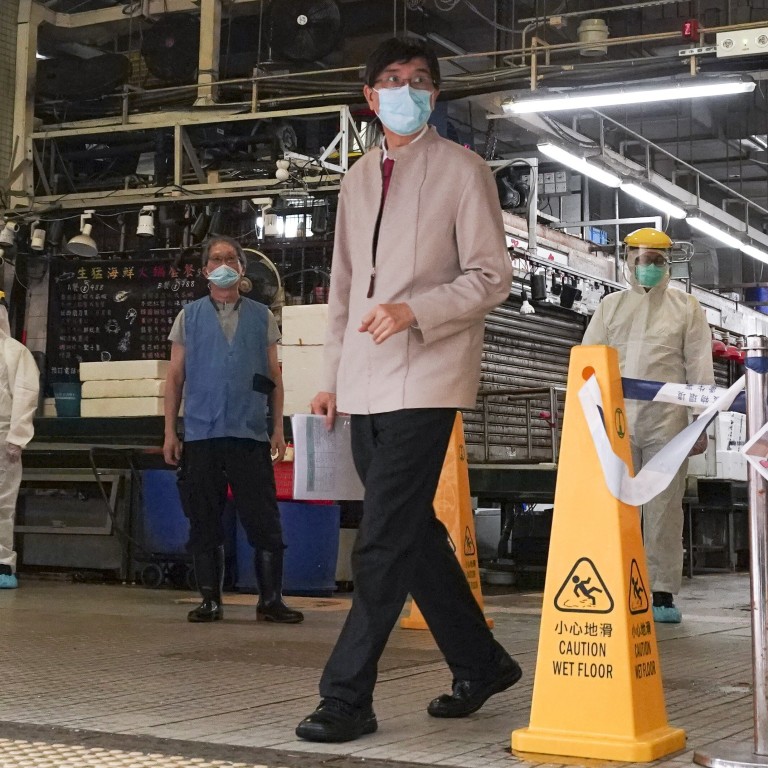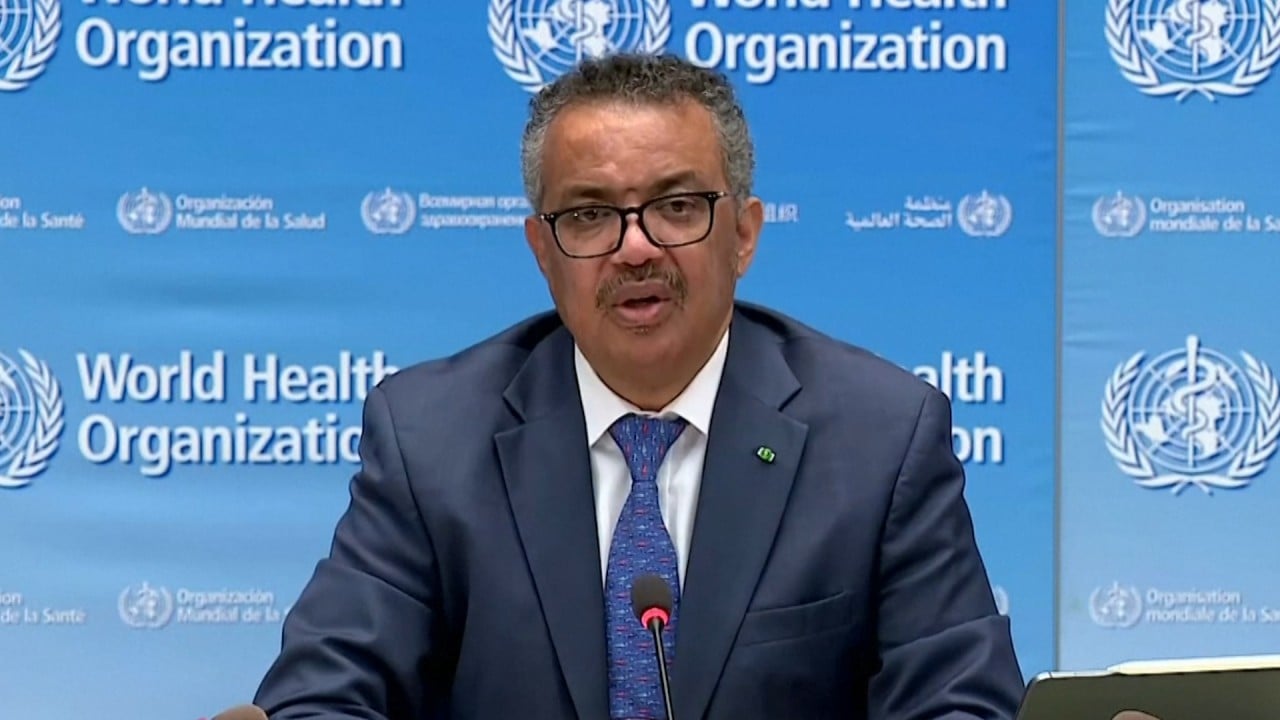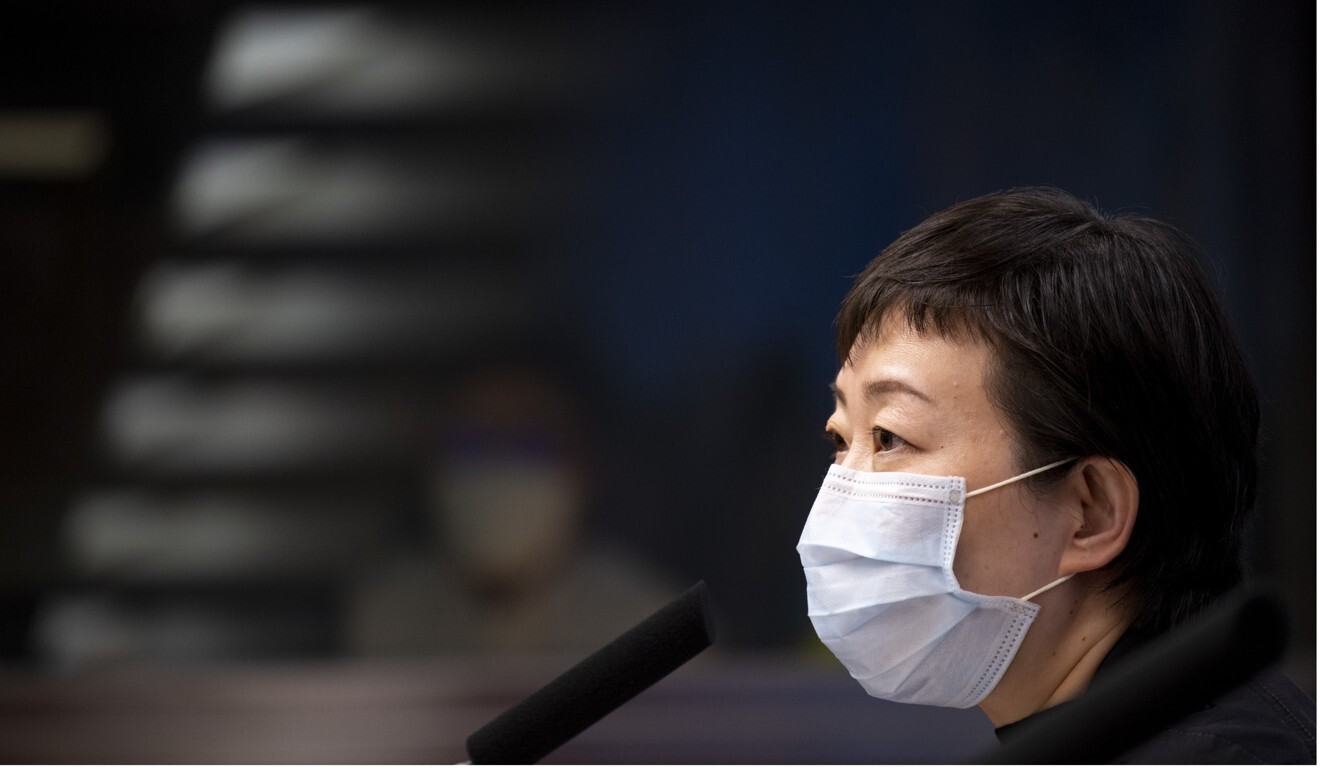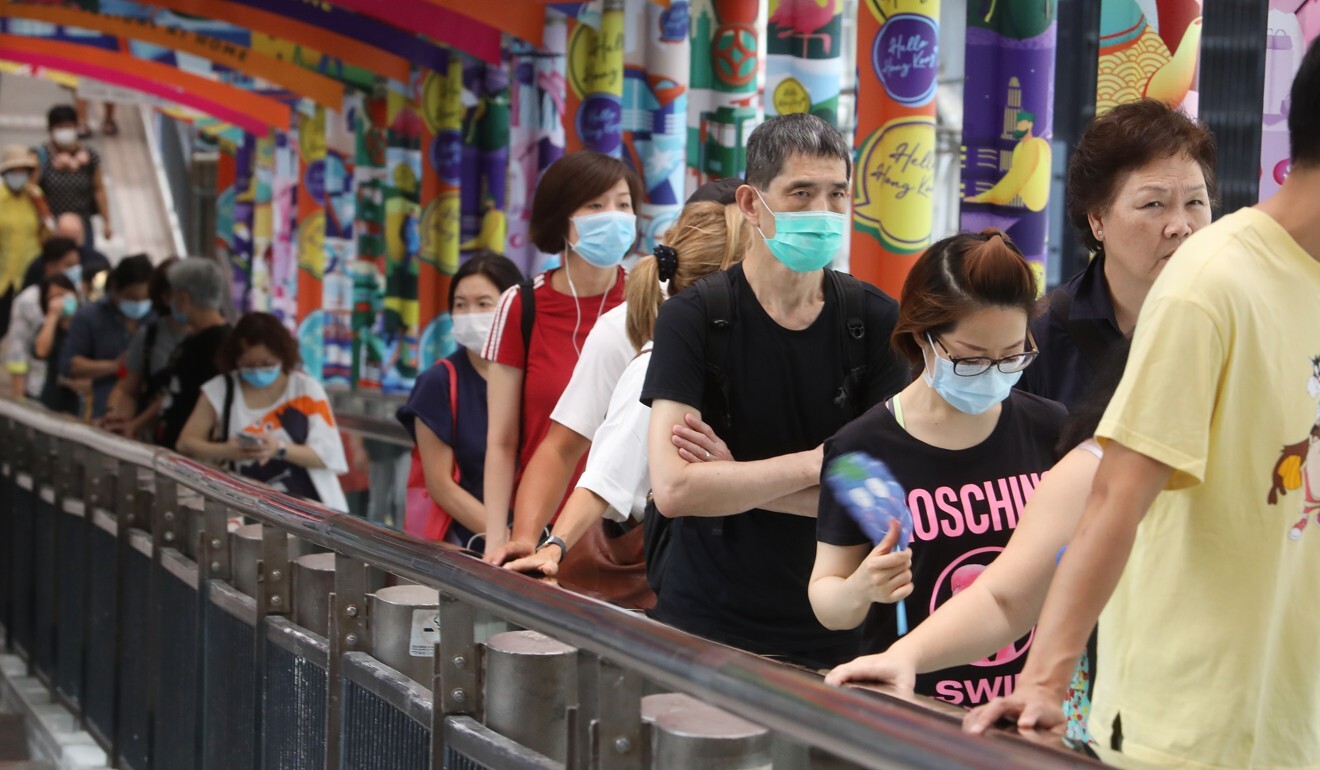
Hong Kong third wave: growing Covid-19 clusters at two wet markets spark fears of wider outbreaks as city records 80 new cases and four deaths
- Five cases have been linked to four fish stalls at Hung Hom market while 10 others, including cleaners and workers at stores, have also been infected
- Health officials worry whether transmission of the virus has occurred in the same way as in markets in Wuhan and Beijing
Altogether, five cases have been linked to four fish stalls at Hung Hom market and two cases linked to two stalls in To Kwa Wan. Ten others in Hung Hom market, including cleaners and workers at frozen meat and dry goods stores, have also been infected.

00:46
There may never be a 'silver bullet' for coronavirus, WHO chief says
“We are worried whether a similar [transmission] situation has occurred in Hong Kong,” said Dr Chuang Shuk-kwan, head of the Centre for Health Protection’s communicable disease branch.
“Because the stalls are quite close to each other, maybe they [the cases] are spread by human-to-human transmission.”
Professor Yuen Kwok-yung, who inspected the Hung Hom market on Tuesday, said that of five possible theories of transmission, three were most likely.
He believed the virus could have been brought into the market via the saliva of an infected customer, or by stall owners who usually gathered to eat on the third floor of the building between 1pm and 4pm.

Infected cats or rats may also have helped spread the virus. But airborne transmission was thought unlikely because of the good air flow while infections by seafood was unlikely. The nearby To Kwa Wan market was a bit tidier but common high-risk factors remained, Yuen said, after paying a visit there.
“The virus can survive in these wet environments in 4 degrees Celsius in the ice for seven days.”
Environmental samples were taken from chopping boards, ice, water and measuring scales, but Yuen said there were no fish in the market when he arrived.
The two markets had closed early at 5pm on Tuesday for disinfection, and would remain closed on Wednesday and Thursday while the environmental samples were being tested.
He urged the public to practise good personal hygiene while shopping but told Hongkongers not to get too worried. “It’s okay to eat fish and seafood. The most important thing is they have to be thoroughly cooked, if so then there needn’t be any worries even if they are contaminated by the virus when sold to you,” he said.
Yuen also warned Hongkongers to not get complacent even as the city recorded a drop in cases on Monday and Tuesday, after 12 straight days of triple-digit increases.
“If there’s a super spreader at a home for the elderly or at a wet market, it’s very easy for cases to surge again.”
Plans for at least two temporary hospitals and expanded makeshift facilities amid third wave
All but five of the new cases were locally transmitted, including 32 that could not be traced, Chuang said. There were around 50 preliminary positive cases.
The city’s tally of confirmed infections stood at 3,669, with 42 deaths.
Chuang said the imported cases involved an arrival from Russia, two aircrew members and two domestic workers from the Philippines who tested positive for the virus on the 12th day of their hotel quarantine.
Among known clusters, eight more positive and three preliminary positive cases were added to the one involving Star Global, a direct sales company at Yee On Court on Argyle Street, taking confirmed infections there to 45.
One more infection was recorded at King Fok Limited, a care home for the elderly on Shun Ning Road in Sham Shui Po. So far, 17 such homes have been hit by the city’s third wave of Covid-19.
Among the fatalities was an 82-year-old woman, identified as a diner at Deluxe Cuisine at Tsz Wan Shan Shopping Centre, who had chronic illnesses and was admitted to Queen Elizabeth Hospital on July 9 with fever and cough. Her condition later deteriorated and she died at 5.29am on Tuesday.
The Hospital Authority also announced the death of a patient, also 82, at Prince of Wales Hospital in Sha Tin on Monday night. She was a resident of Ping Shek Estate in Ngau Chi Wan.
An 85-year-old patient, who was among Tuesday’s confirmed cases, was the third fatality.
The fourth was an 82-year-old resident at Cornwall Elderly’s Home (Golden Branch) in Tuen Mun, who had chronic illnesses, and died at Tuen Mun Hospital.

The government on Monday extended social-distancing measures, including a ban on gatherings of more than two people and mandatory mask-wearing in public places, for a week. The ban on dine-in services at restaurants from 6pm until 5am will also continue, while 14 types of establishments – such as bars, gyms, and sports facilities – will remain closed.
Dr Leung Chi-chiu, chairman of the advisory committee on communicable diseases at the Hong Kong Medical Association, said the extension was necessary as there were no signs the pandemic was under control.
“Seven days are not enough. The public may have to expect that authorities will not be able to relax their policies in the next few weeks,” Leung told a radio show on Tuesday.
AsiaWorld-Expo earmarked as next holding facility for stable Covid-19 patients
Meanwhile, a study by the University of Hong Kong found that Sars-CoV-2, the virus that caused Covid-19, can infect human neural cells and the brain in laboratory experiments.
Lead researcher Huang Jiandong, a professor from HKU’s school of biomedical sciences, said the study provided the first evidence of direct Sars-CoV-2 infection in human brain organoids, or artificially grown cell masses.
Past studies from the mainland and France had shown signs of neurological symptoms, such as headache and confusion, among Covid-19 patients.
Additional reporting by Elizabeth Cheung



